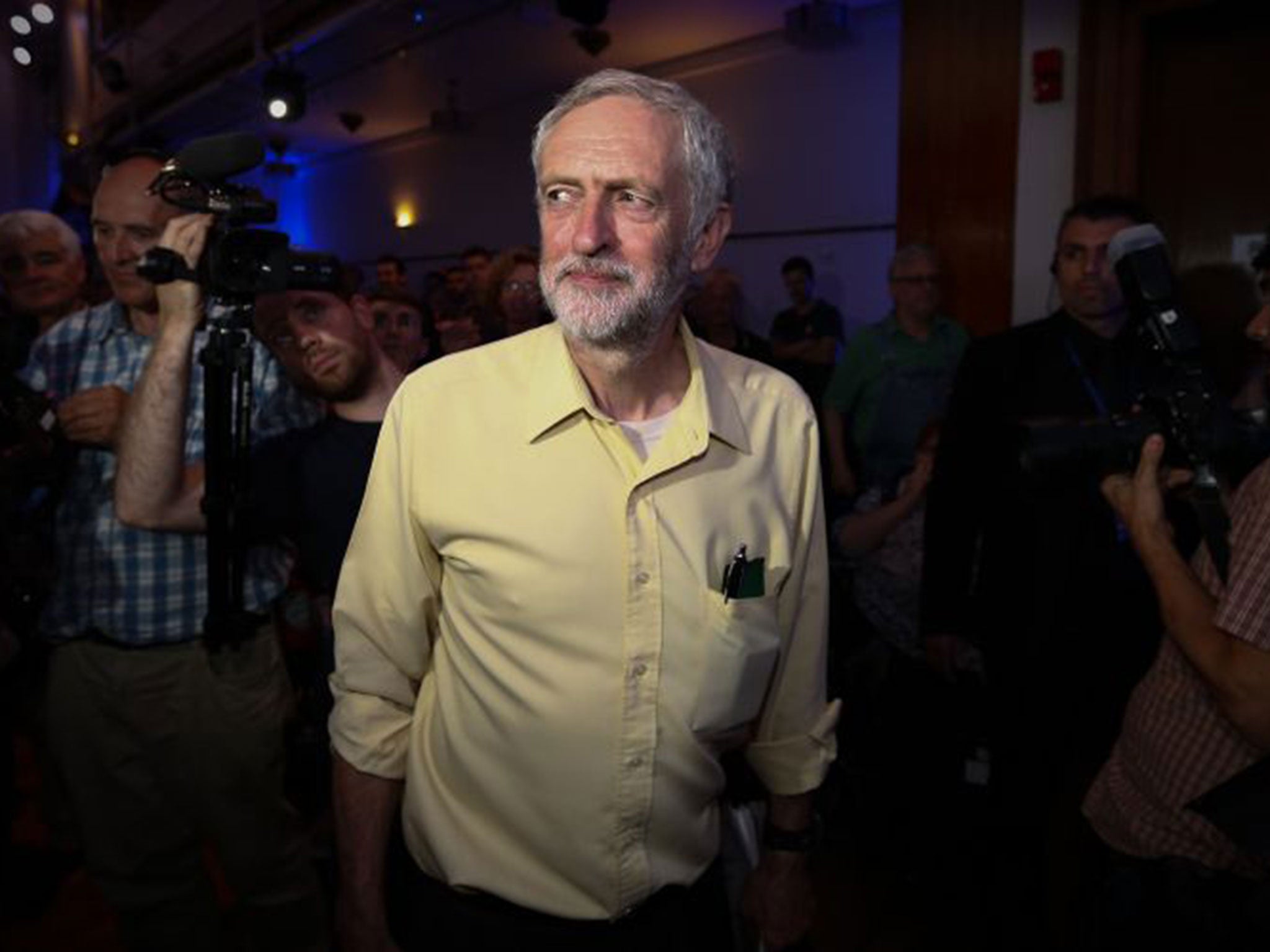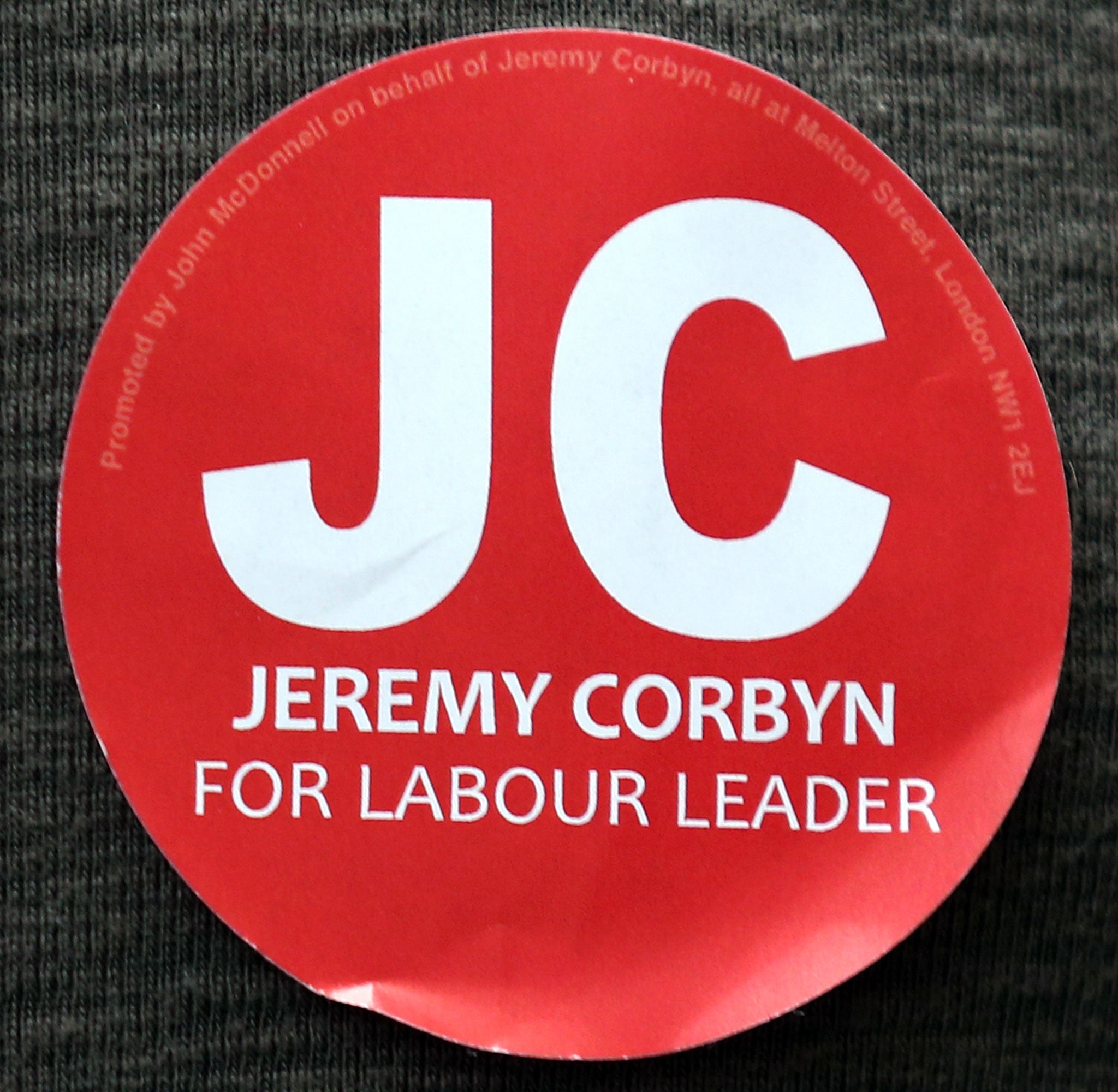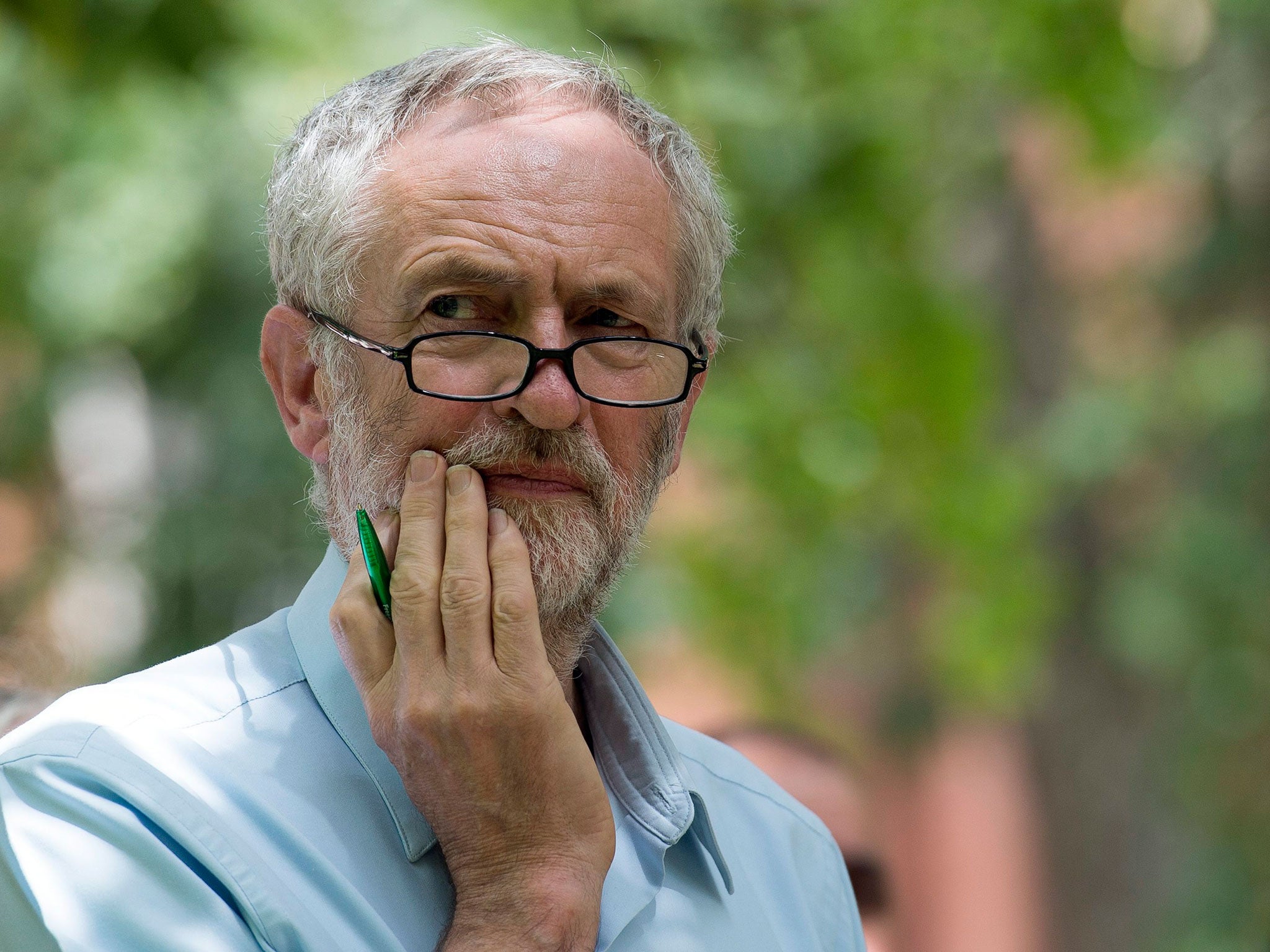Labour leadership race: How has Jeremy Corbyn galvanised so many people - young and old?
At Jeremy Corbyn's crowded headquarters, keen teenagers hustle alongside devoted pensioners, all determined their man will win the Labour leadership. Joseph Charlton joins the ranks of an extraordinary volunteer movement

Yemi Hailemariam met Jeremy Corbyn a year ago. She was waiting outside his office in Islington North, and Corbyn arrived on a bicycle. She was there to speak to him about her partner, Andargachew Tsege, who one week earlier had been detained in a Yemen airport, had a sack put over his head, and been transported 500 miles in the dark to an unnamed Ethiopian prison.
Andargachew, or Andy, as he is known to Yemi and their children, had been wanted by the Ethiopian authorities for several years. A political refugee and UK citizen, he wrote a book that irritated the regime, and in 2009 was issued with the death penalty in return. Five years later, waiting for a connecting flight to Eritrea, Andy was intercepted. Yemi, fearing the worst, went directly to Corbyn – her partner's constituency MP.
Corbyn arranged a meeting in Parliament with the Foreign Office, and then a press conference. He raised three separate early day motions with parliamentarians, delivered a petition to Downing Street, and held two personal meetings with the Ethiopian ambassador in the UK. He also asked Yemi to recommend him a book on Ethiopian history and politics so he could become au fait with the subject.
Andy remains in detention – held incommunicado in solitary confinement having had three meetings in total, all with an ambassador, since his incarceration. Corbyn intended to fly out to try to visit Andy this summer, Yemi tells me, but was refused a visa by the Ethiopian embassy.
"He is my champion," says Yemi. "His office is my champion. Any time I ask, he is there. Now I am supporting him in return."
Yemi is one of 7,000 who have so far signed up to volunteer for the Corbyn for Leader campaign. I'm another. We meet at an unofficial Saturday picnic event in Russell Square for Corbyn supporters. I'm curious about Corbyn and the people who are volunteering in his campaign. Unsurprisingly there are lots of teenagers here, but also a considerable number of pensioners. Both have been involved in manning the phone banks at Corbyn supporters HQ earlier that day.
The picnic consists of dips, olives, cold meats and pitta breads, though one supporter has also brought some prosecco and smoked salmon. "It's to prove we also have aspirational values," he explains.
A few days later I visit the London office space that the Unite union has lent to the campaign. The room is abuzz, and can barely handle the number of volunteers, with about two or three made to share each desk. I speak to Will Armston-Sheret, a 20-year-old student, who has been volunteering since day one and has since become unofficial head of data. "When I joined there were four," he says. "Now we have over 7,000 people signed up."
Much of the work involves setting up new offices across the country. There are 10 regional officers – all volunteers – and each has set up at least one phone bank in their area, some several. At each office, volunteers come in – some offices are open seven days a week – to phone Labour party members and urge them to register so they can vote for Corbyn when ballot papers go out on 14 August. At one point, I'm told, there was a new phone bank being established every day.
"At the start of the campaign we were on such a shoestring that we barely had enough money for leaflets," says chief volunteer and journalist James Schneider. "Now we've raised more than £100,000 in small donations."
The latest project within HQ is an app, specially developed for the campaign, allowing volunteers to phone-petition for Corbyn remotely, and then log the data immediately from their computers or mobiles.
More menial tasks also require attention. Every donation made over £10 merits a letter of thanks, and there are also emails enquiring into Corbyn's wellbeing to attend to. "We had an email last week about Jeremy's vocal chords," one of the volunteers tells me. "It said something along the lines of: 'I'm very worried about Jeremy's throat. I'd like to recommend him Echinacea. I'm worried he's doing too much public speaking'."

I ask Armston-Sheret, who is volunteering 10am-8pm, six days a week, what's prompting the enthusiasm for Corbyn. "We noticed a particular spike in donations after Tony Blair came out against the campaign," he says. "The bad publicity plays into our hands. It shows that negative campaigning just doesn't work."
In the London office, there is an air of quiet invincibility among the Corbynites. Unlike the Kendall, Burnham and Cooper camps, Team Corbyn has no plans to share any of its internal polling, but I'm told by one volunteer that senior members of the campaign come out of data collation meetings with smiling confidence. "I think it's a 50/50 chance of winning," says Schneider. "There's still a long way to go, and there's still a lot of mud to be thrown."
Kat Fletcher, who is in charge of the volunteer movement, and was Corbyn's agent at the general election, is also keen to keep expectations in check. "Most of all, we need to decide how this movement continues after 12 September, whatever happens," she says. "This isn't about him, it's about us – as Jeremy always says. It's about keeping together this grassroots movement of people. But it does feel like being in the middle of history here."
I look around. There are, among others: a stream of late teens popping in and out of the office for rollies; a mother and son duo bickering as they both complete data entry tasks; a group of pensioners stamping letters of thanks; several teachers and ex-teachers (one of whom has cancelled her holiday for the campaign); a young Asian man instructing a 70-year-old white woman how to use Microsoft Excel.
Next door, in the space Unite have allotted to the Tom Watson deputy campaign, you can see four thirty-something white guys with indie haircuts through the window. The contrast is stark.
Later that week, at an evening phone bank session, it's striking to also meet young professionals giving up their time after work for the Corbyn campaign. An analyst from Google tells me: "I support Corbyn and I think I'm quite good at cold-calling. That's why I'm here." A solicitor at a commercial law firm says: "I like talking to people from northern constituencies the most. They like to talk about Corbyn."
Later, the writer Owen Jones visits, addressing 230 phone bankers. "You are building a politics of hope," he says to cheers. "The genie has come out of the lamp and it's not going back in." After the event, volunteer organiser Kat Fletcher says: "This is not just about a bunch of youngsters getting involved, it's across the generations. We're seeing people coming back to the party, or seeing people who've been dormant for a decade or two. And of course a lot of new members too."
This last group is key. There were around 200,000 Labour members at the time of the May general election. Now, according to Labour insiders, there will be about 320,000 eligible to vote in this month's leadership election. Crucially, the recent Times/YouGov opinion poll suggests that those new members are overwhelmingly pro-Corbyn. His opponents now have less than two weeks to take the fight to the electorate.
Corbyn himself has visited the London volunteer office just three or four times. "We respect that he really isn't needed here all the time," says Fletcher. "The appetite for Jeremy is growing out there. What we're doing here is bringing Jeremy to them: setting up rallies, organising events for him to speak at. Every venue we have booked so far has reached capacity in RSVP'd tickets."
Much has been made of Corbyn's age – with The Sun's Trevor Kavanagh keen to point out that Corbyn would be 71 by the time he got a crack at being Prime Minister. From inside the campaign 66-year-old Corbyn shows all the signs of fizzing with energy: taking on three to four gigs a day, and taking media requests as he goes. Corbyn also has no special advisers on hand, a fact which some credit as the reason behind his clear lines on response in debates. As Iain Dale put it to Kendall, Cooper and Burnham during July's LBC leadership hustings: "This is exactly why Jeremy Corbyn is shown as way ahead of the rest of you. He's given me a straight answer to a straight question."
I ask some of the volunteers about their own encounters with Corbyn. "He's a really nice guy," is the standard response – with many drawing attention to the fact that they're here for the movement, not to hero worship.
According to some reports from the office, Corbyn is exhaustively democratic in his decision-making. One volunteer tells me: "He came into the office last week, said hello, checked on how things we're going, then put it to the room that he was going to take his son out for a sandwich to talk about how things were going at university. We unanimously agreed that was a very reasonable thing to do."
That spirit of democratic vote is, I'm told, what brought Corbyn to become candidate for leader in the first place. "MPs of the left got together and decided they wanted Jeremy to run," one of his volunteers tells me. "It was then put to Jeremy and, after talks and some insistence, he accepted."
Moses, Emperor Augustus, George Washington, Barack Obama, Pope Francis... could Jeremy Corbyn's name really be the next inducted into history's pageant of reluctant leaders? Corbyn himself rejects comparisons, and indeed undue singular admiration, outright. And yet social media has continued to throw up photoshopped images of Corbyn in the style of Shepard Fairey's immortal blue and red colour-cast of Obama; the word HOPE similarly fixed beneath Corbyn's incomparably older, shabbier image.
I go to see Corbyn speak at Camden Town Hall. Outside, it's mayhem. The event is so overbooked that the queue stretches a quarter of a mile back. The Socialist Worker street team is having a field day and booksellers have set up make-shift stalls to try and flog copies of The Communist Manifesto and Das Kapital. Kaya Mar, a political artist made mildly famous on Twitter for his depictions of George Osborne in the nude, exhibits a new work. It's a grotesque depiction of "Mother Labour" after childbirth, having just delivered her unwanted baby, "Saint Jeremy". "He's Michael Foot the Second," Kaya explains. "The painting is not for sale."

There are new volunteers leafleting here tonight. Katy, a 17-year-old who has travelled in from Essex, says: "I now actually have someone I want to vote for." While Hassan, a 16-year-old from west London, also flyering, says: "This is my first foray into political activism. I'm here because I watched a video of Jeremy speaking at the Oxford Union on YouTube."
Inside, the event is so overbooked that Corbyn gives four separate speeches – the first three to three separate rooms. The fourth he delivers from the top of a fire engine outside the event – speaking through a loudspeaker to the hordes who have failed to get a ticket.
"We're fed up by personality politics, by the politics of personal abuse, by the politics of celebrity," Corbyn announces in perfect tricolons. "We want something stronger."
One irony of this campaign – it strikes me – is that the politics of personality which Corbyn so disparages, he also exudes. How can it be that a 66-year-old white male with a beard has galvanised this many people? His tastes range from the gauche, to the obvious, to the unforgivably earnest. Favourite song? "Imagine", John Lennon. Favourite writer? Chinua Achebe. Favourite film? A toss-up between Casablanca and The Great Gatsby. Most perplexed of all by this new-found popularity is Corbyn, who found himself majorly tongue-tied on Radio 4's Woman's Hour last week when called upon to discuss a Mumsnet online forum discussion on his "sexiness".
None of it, to Corbyn or his supporters, matters. In May, Corbyn won Islington North with a whopping 21,000 majority – one presumes it wasn't because of his svelte dress sense.
Less up for debate than his sexiness is his rhetorical flair, the single talent Corbyn might admit to sharing with Blair. In his speeches he evokes Trade Unionists, Chartists, and Tolpuddle martyrs. Then he moves on swiftly to the Suffragettes, anti-racism protests, and LGBT activism – weaving a historical narrative which his campaign implicitly becomes a part of.
I ask James Schneider whether he believes that Corbyn could actually become the Prime Minister in 2020.
"Yes I do," he says. "This movement has done a lot in three weeks already. There are going to be a lot of changes during his opposition, and there are going to be a lot of changes in the next five years."
Yemi – watching Corbyn at the rally – is in tears. Afterwards, she says: "For me he makes politics personal, and he makes power personal. He has the higher level but he also makes it possible for the little people. He connects the dots. He connects the little people with the power. You can see the path clearly."
Why Corbyn is so popular
By Frank Cottrell Boyce
Only 25 per cent of the population earns more than £30,000 a year. Most media commentators (including me) do. For people like me, the country basically works. Politics doesn't affect me. Politics, for me, is about how other people are treated. It's easy inside my echo-chamber to believe that I am the norm, or the middle. Easy to forget that there are voices outside.
To people in my position, austerity can be read as regrettable but pragmatic. But to my friends and family, who live outside the bubble, it's not regrettable, it's terrifying. It's also not pragmatic. The crackpot, gimcrack ideological nature of austerity becomes more apparent the closer you get to the point of delivery.
Outside the bubble, everyone knows that an economy in which you can work 50 hours a week and still need tax credit to make the rent is a broken economy. To those outside the bubble, a Parliament that knows the country does not have enough houses yet cannot bring itself to build any for fear of "interfering with the market", is not a Parliament at all. And a media that sees a 50p top tax-rate, public investment and re-nationalisation of the worst failures of privatisation (railways and energy) as politically dangerous is a media whose understanding of politics has shrivelled into mere gossip.
People keep comparing the Corbyn campaign to 1983. But surely the more apt comparison is with 2001. Back then, everyone in the country – apart a few hundred politicians – knew that there were no Weapons of Mass Destruction, that the invasion of Iraq was a harebrained folly that would end in tragedy. In 2015, everyone – except a few hundred politicians – can see that austerity is a harebrained folly that could end in tragedy.
We were right then. We're right now.
Join our commenting forum
Join thought-provoking conversations, follow other Independent readers and see their replies
Comments